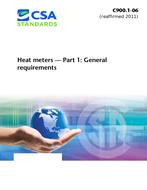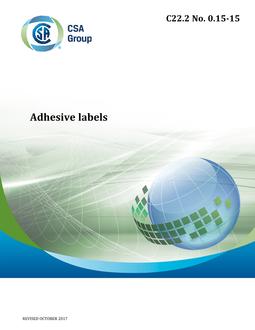Preface
This is the second edition of CSA C22.2 No. 229, Switching and metering centres, one of a series of Standards issued by CSA Group under Part II of the Canadian Electrical Code. It supersedes the previous edition published in 1988. Changes implemented from the previous edition include a change in scope to permit hot metering as allowed for under Rule 6-402 of the Canadian Electrical Code Part I, a new section on barriers and new barrier tables, an updated test circuit diagram and numerous other minor updates throughout. For general information on the Standards of the Canadian Electrical Code, Part II, see the Preface of CAN/CSA-C22.2 No. 0, General Requirements – Canadian Electrical Code, Part II.
Scope
1.1 This Standard applies to switching and metering centres (hereafter may be referred to for convenience as metering centres or centres) rated 600 V and less, intended to be used in accordance with the Rules of the Canadian Electrical Code, Part I, in nonhazardous locations, to provide switching, overcurrent protection and metering for a number of circuits supplied from a consumer service. The centres may also include the service compartment. 1.2 This Standard applies to centres that a) have the individual circuit overcurrent devices connected on the supply side of the meter-mounting devices; or b) have the individual circuit overcurrent devices connected on the load side of the meter-mounting devices for devices where the voltage between conductors does not exceed 300 V ac. 1.3 A centre as covered by this Standard consists of individual metering sections containing meter-mounting devices and circuit breakers or fusible switches or having provision for mounting such circuit breakers or fusible switches, and the following components, which may be either factory or field assembled to each other: a) mains terminal section (connection box) or main switch or main circuit breaker section; b) elbow assemblies; c) subfeed terminal sections; and d) main busbars or linkages, or both. 1.4 In this Standard, “shall” is used to express a requirement, i.e., a provision that the user is obliged to satisfy in order to comply with the standard; “should” is used to express a recommendation or that which is advised but not required; and “may” is used to express an option or that which is permissible within the limits of the Standard. Notes accompanying clauses do not include requirements or alternative requirements; the purpose of a note accompanying a clause is to separate from the text explanatory or informative material. Notes to tables and figures are considered part of the table or figure and may be written as requirements. Annexes are designated normative (mandatory) or informative (non-mandatory) to define their application.
Product Details
- Edition:
- 2nd
- Published:
- 03/01/2017
- ISBN(s):
- 9781488306846
- Number of Pages:
- 42
- File Size:
- 1 file , 1.5 MB
- Product Code(s):
- 2425016, 2425016, 2425016


